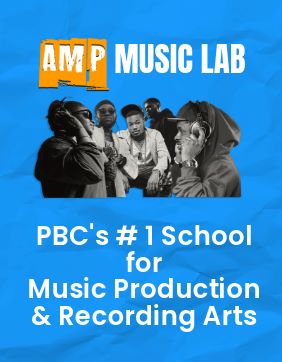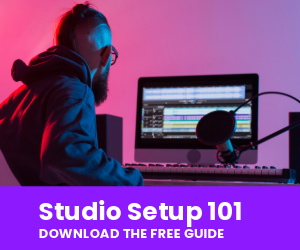
When I first started in music production, I was making beats on an MPC 2000. I could create some cool 4-measure loops, but they quickly became repetitive and boring when played over and over again. It wasn’t until I learned music theory that my tracks started to sound more musically interesting and dynamic. Understanding music theory opened up a whole new world of possibilities for my music.
What is Music Theory?
Music theory is a system of principles, concepts, and rules that help us understand and analyze how music works. It provides a framework for studying and explaining the structure, notation, harmony, rhythm, melody, and other elements of music. Through music theory, we can learn about scales, chords, intervals, key signatures, time signatures, rhythmic patterns, and various techniques used in music composition and performance.

Music theory allows us to describe and communicate musical ideas, explore the relationships between different musical elements, and make informed decisions in composition, performance, and analysis. It’s used by composers to create harmonically pleasing and structurally coherent compositions, by performers to interpret and convey the intended musical expression, and by analysts to examine and interpret the inner workings of a musical piece.
Why is Music Theory Important for Music Production?
Learning music theory offers several benefits, including:
- Empowering musicians with knowledge, skills, and a deeper understanding of music.
- Enabling effective communication and collaboration among musicians.
- Enhancing compositional abilities, allowing for greater fluency in creating music.
- Fostering creative improvisation and exploration of musical ideas.
- Facilitating thoughtful interpretation of musical performances.
- Developing ear training and musical perception skills.
- Deepening appreciation and enjoyment of music through analysis and understanding.
Studying music theory provides producers with the tools and insights to communicate, create, improvise, interpret, and appreciate music on a more profound level.
Basic Music Theory Concepts
Scales and Modes
Definition: Scales are a sequence of pitches arranged in ascending or descending order.
Major and Minor Scales: Major scales have a bright and happy sound, while minor scales evoke a melancholic or introspective mood.
Modes: Modes are variations of the major and minor scales, each with its unique tonal character.
Intervals
Definition: Intervals are the distances between two pitches.
Classification: Intervals are classified as major, minor, perfect, augmented, or diminished, based on their size.
Importance: Intervals play a crucial role in constructing melodies, chords, and harmonies.
Chords
Definition: Chords are three or more pitches played simultaneously.
Triads: Triads are three-note chords consisting of a root, third, and fifth.
Major and Minor Chords: Major chords have a bright and consonant quality, while minor chords sound more introspective and melancholic.
Harmony
Definition: Harmony refers to the combination of multiple pitches played together.
Chord Progressions: Chord progressions are a series of chords played in succession and form the backbone of harmony in music.
Functional Harmony: Functional harmony refers to the relationship between chords and their role in creating tension and resolution.
Rhythm
Definition: Rhythm refers to the organization of sounds and silences over time.
Note Duration: Different note durations, such as whole notes, half notes, quarter notes, etc., dictate the length of sound within a composition.
Time Signatures: Time signatures define the number of beats per measure and the value assigned to each beat, providing the rhythmic structure of a piece.
Understanding these basic music theory concepts provides musicians with a strong foundation for further musical exploration and development. These concepts offer insights into the structure, organization, and expressive elements of music, enabling musicians to communicate, create, and appreciate music with greater depth and nuance.

Learn Music Theory with AMP Music Lab
In the AMP Music Production Training Program, we cover music theory in Lab 3. Thanks to computer software, you can compose musically interesting songs without years of practice on an instrument, but you do need to unlock the secrets of music theory.
Ready to Take Your Music to the Next Level?
Join our AMP Music Production Training Program and master the art of music production. Whether you prefer in-studio lessons at AMP Music Lab in West Palm Beach, FL, or online instruction through our AMP Virtual Instruction Program (AMP VIP), we have the resources and expertise to help you succeed.
Sign up now and start your journey to creating professional, radio-ready music!















